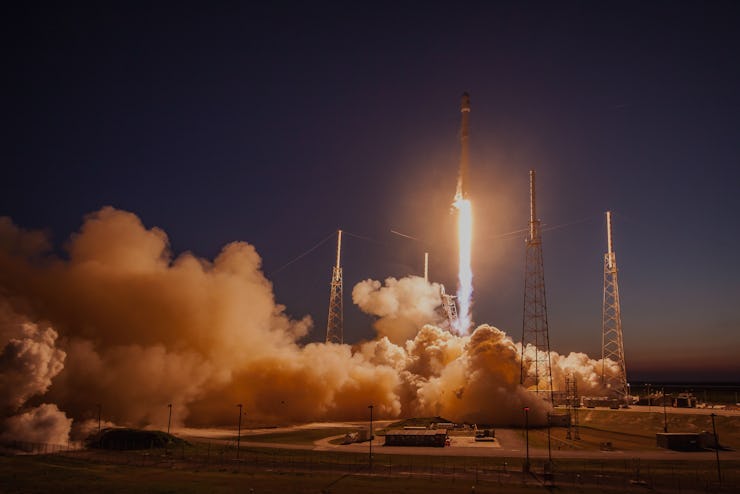After an unexpected explosion of its Falcon X rocket on September 1, SpaceX is asking the internet to join their search for answers. On Friday the company tweeted:
“If you have audio, photos or videos of our anomaly last week, please send to report@spacex.com. Material may be useful for investigation.”
Videos of the explosion has led to the speculation that an unidentified flying object could have been the cause of the explosion.
An object can be seen flying by the top of the rocket right before it combusts. The explosion destroyed not just the rocket, but also Mark Zuckerberg’s prized AMOS-6 internet-beaming satellite.
So far Tesla and federal agencies, including the Federal Aviation Administration, and NASA, have not ruled out the idea the theory that an external object caused the rocket to explode.
Elon Musk stated the Tesla is “particularly trying to understand the quieter bang sound a few seconds before the fireball goes off. May come from rocket or something else.”
“We are currently in the early process of reviewing approximately 3000 channels of telemetry and video data covering a time period of just 35-55 milliseconds,” SpaceX wrote in a blogpost on September 2, the day after the explosion.
Crowdsourcing the investigation of such a dramatic explosion is just one example of the move towards transparency in space exploration
In April NASA’s Open Innovation held its second annual Space Apps Challenge hackathon to to allow users across the world to develop technological solutions for issues in space and beyond. While unsuccessful, a company named Moonspike launched a Kickstarter last year for the first crowd-funded moon rocket](https://www.inverse.com/article/7275-the-campaign-for-the-world-s-first-crowd-funded-moon-rocket-is-sputtering).
Twitter users have already chimed in with their own ideas for the investigation, which range from practical to bizarre:
If SpaceX is unable to prove that the explosion resulted from something other than an internal malfunction, all future launches by the company will be postponed until March 2017. The delay may only be six months if the company can prove the explosion wasn’t their fault, but even a few months could cost the company some of its $10 billion in contracts. The ban could also set back testing of bigger launch systems and SpaceX’s potential plans to send humans into space.
Video of the incident can be found below for any clue-hunters:
